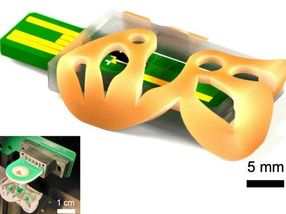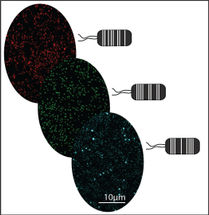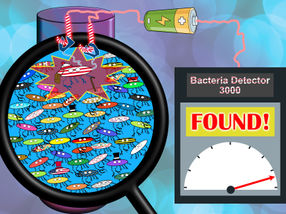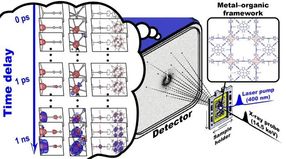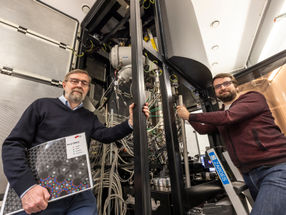New radiopharmaceutical based on DARPin scaffold for cancer diagnosis
99Tc-artificial protein chelate complex ready for preclinical trials
A radiopharmaceutical for advanced identification of cancer, labeled with the technetium-99 isotope, is ready for the preclinical-phase trial. Scientists from Tomsk Polytechnic University, Tomsk Research Institute of oncology and the Institute of Biorganic Chemistry of the Russian Academy of Sciences have been jointly working on the development of the medication.
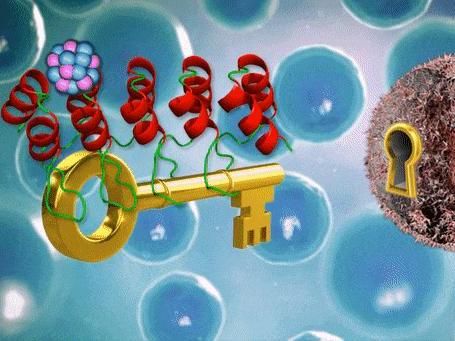
This is a radiopharmaceutical labeled with isotope technetium-99 identifies cancer cell.
RIA Novosti (Russian news agency)
The project is headed by chemists of the Institute of Natural Resources of Tomsk Polytechnic University and the Institute of Physics and Technology. This radiopharmaceutical has a complex structure the basis of which is a protein scaffold DARPin with the attached chelate complex, which binds the protein to the radioactive technetium-99 isotope. TPU scientists developed a non-waste technology for the production of this highly sought isotope in the medical diagnostics.
'There is a so called lock on the cancerous cell in the form of receptors and the protein contained in the medication is the key to the receptors. The key needs to be labeled in case not to be lost among numerous keys. That is the reason why the chelate complexes are essential in this process.
The isotope of technetium is entrapped on this marker and is easily tightened with the help of gamma cameras. This structure of the radiopharmaceutical makes it possible to accurately determine the size of the tumor as well as its location. It is especially important in the diagnosis of small-cell cancers when cancer cells are scattered over the affected organ,' says the Head of Department of Organic Substances and Polymers Mekhman Yusubov.
In 2017, TPU researchers have patented the technology for obtaining chelate complexes.
'We proposed our way to obtain chelate complexes. We use iodine as one the reagents.
In general, the technology for obtaining these complexes using iodine is more effective as the yield of the final product increases and the number of stages for it obtaining is reduced. In addition, the technology is more cost-effective compared to the existing ones due to the application of cheap and environmentally friendly reagents,' Mekhman Yusubov says.
According to the scientist, in the future this drug can be used for both diagnosis and treatment of cancer diseases. However, more detailed studies have to be performed.
This network research project was supported by the Federal Target Program Development of Pharmaceutical and Medical Industry of the Russian Federation for the period up to 2020 and beyond. Preclinical trials are to be completed in 2019.
Other news from the department science
Most read news
More news from our other portals
See the theme worlds for related content
Topic world Diagnostics
Diagnostics is at the heart of modern medicine and forms a crucial interface between research and patient care in the biotech and pharmaceutical industries. It not only enables early detection and monitoring of disease, but also plays a central role in individualized medicine by enabling targeted therapies based on an individual's genetic and molecular signature.

Topic world Diagnostics
Diagnostics is at the heart of modern medicine and forms a crucial interface between research and patient care in the biotech and pharmaceutical industries. It not only enables early detection and monitoring of disease, but also plays a central role in individualized medicine by enabling targeted therapies based on an individual's genetic and molecular signature.






